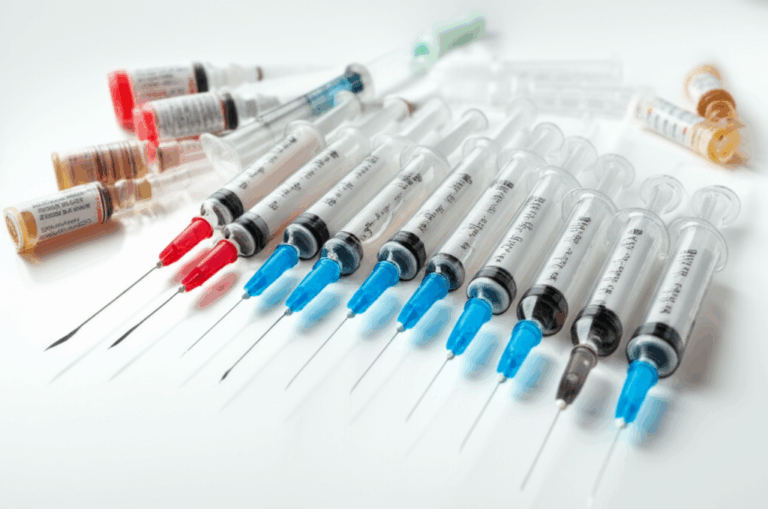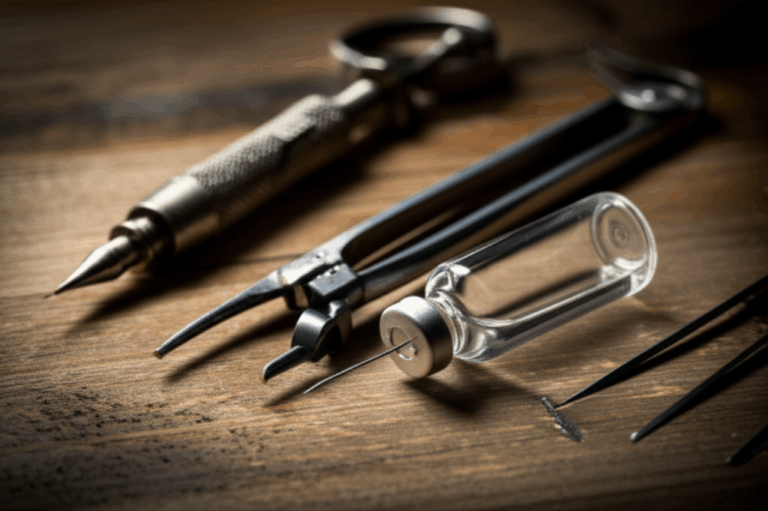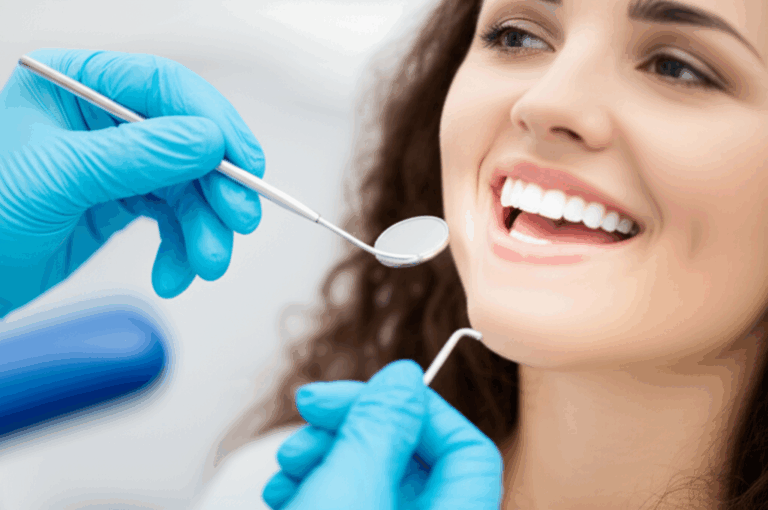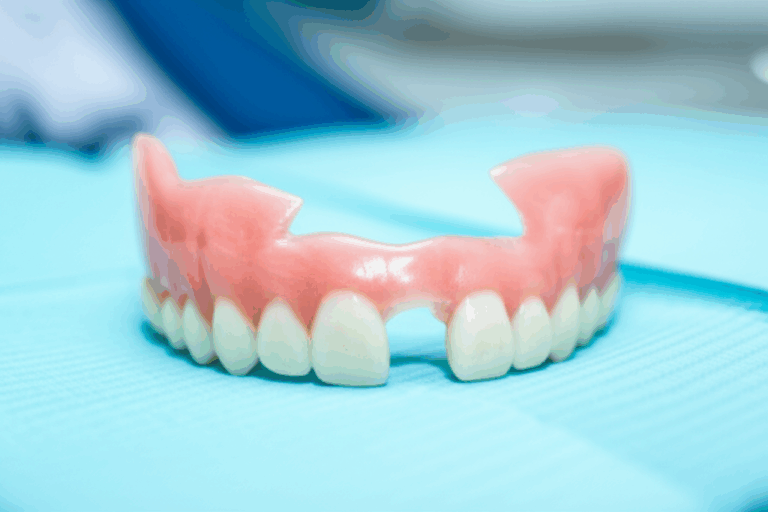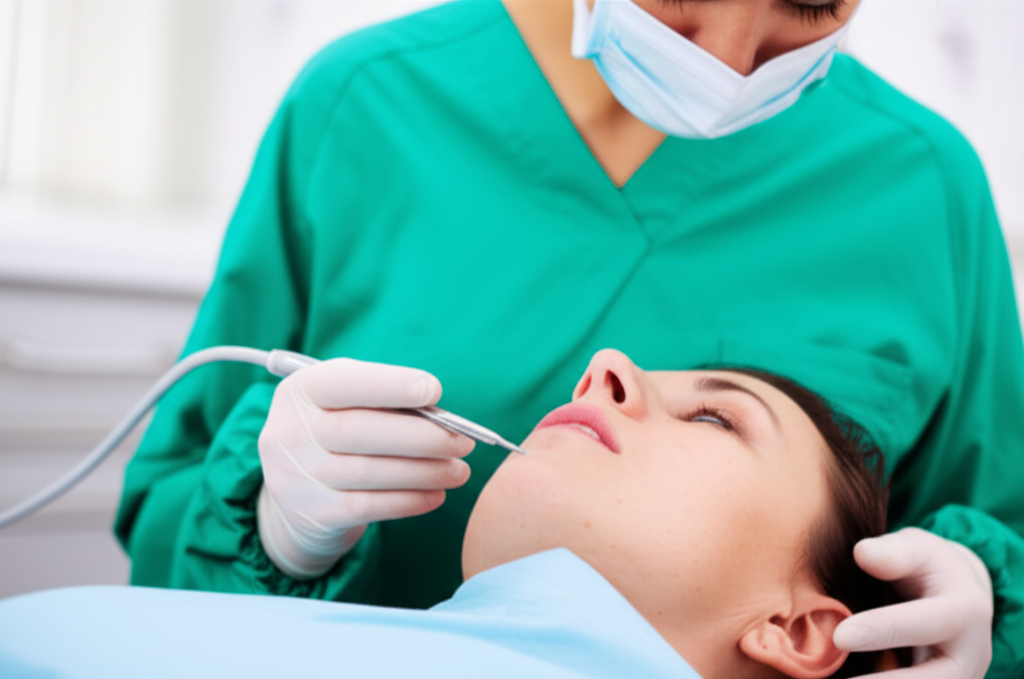
Can a Dentist Perform Buccal Fat Removal? (My Honest, No-Nonsense Guide)
Table of Contents
1. Introduction: Why I Wanted Clearer Cheekbones—And Answers
I’m just being honest here. The first time I heard about buccal fat removal (also called bichectomy), I was deep in an internet search about “how to get skinnier cheeks.” I saw some crazy before and after shots. The changes looked amazing. I started wondering—could my “baby face” finally look more grown up?
But then reality set in. I thought, “Who actually does this kind of face surgery? Could my own dentist do it?” Suddenly, I had a bunch of questions. Was this safe? Who really knows how to do it? How would I know who to trust with something so noticeable?
So, I did what anyone would do: I looked it up, talked to a few experts, and learned what different dentists and surgeons actually do. Here’s what I found out—no fancy words, just straight answers.
2. What Buccal Fat Removal Really Is (And What It Isn’t)
What Happens in the Procedure
The procedure is simple to explain, but definitely not something you want done by just anyone. Buccal fat removal is when a doctor takes out a small pad of fat (the “buccal fat pad”) from the lower part of your cheeks, inside your mouth. This pad sits under your cheekbones, right where full cheeks show up. By taking out some of this fat, your face can look thinner, and your cheekbones can stand out more. It’s not for losing weight. It’s just about changing the shape of your face.
Who Might Want It
Not everyone should get this done. Most doctors say the best people for it are usually in their twenties to forties and have a naturally round or full face—even if they aren’t overweight. If your skin bounces back well and you want more cheekbone shape, this might be something to look into. But if your cheeks are already hollow, don’t do it. Removing too much fat can make you look older or too skinny as you age.
What Results Can (and Can’t) You Expect
Thinner cheeks and cheekbones that stand out sound great. But, honestly, the difference is usually quite soft and takes a couple of months to really show once your face stops swelling. You won’t look like a new person overnight. And, sadly, buccal fat removal doesn’t lift loose skin or give you a super strong jawline on its own.
3. Who’s Who: General Dentists, Oral Surgeons, and Plastic Surgeons
This part got confusing for me. “Dentist” can mean a lot of things, but does it mean surgeon? Here’s what I worked out about the different providers.
General Dentists
Think about your normal dentist. The person who checks your teeth, does fillings, puts on crowns, maybe sends stuff off to a china dental lab for custom teeth pieces. These folks are experts with teeth and gums, but that’s mostly where their training stays.
Can a normal dentist do buccal fat removal? Almost always, the answer is no. Most basic dentists simply are not trained or allowed to do face-changing cosmetic surgery. The law usually backs that up—state dental rules don’t let them. So if you think you can get your cheeks sculpted at your routine teeth cleaning, it’s time to think again.
Oral and Maxillofacial Surgeons (OMS or OMFS)
These are the dental experts who go the extra mile. They do 4-6 years more training in hospitals. They learn how to work with the bones and soft parts of the head and face, fix jaw breaks, take out wisdom teeth, treat face injuries, and even do some types of face surgeries—like buccal fat removal.
What I found was: a board-certified Oral and Maxillofacial Surgeon really can do buccal fat removal. Key thing—look for “board-certified.” Not every dentist who calls themselves an “oral surgeon” has done the full training. I checked this out, and being certified by the American Board of Oral and Maxillofacial Surgery mattered a lot for doing the job safely.
Plastic Surgeons & Facial Plastic Surgeons
Plastic surgeons are regular doctors (MDs) who spend years learning to repair and improve looks, sometimes the whole body and sometimes only the face. Facial plastic surgeons focus mostly on the head and neck area. When it comes to face procedures like buccal fat removal (or doing it with other changes like face lifts), these doctors really know their stuff.
I figured out pretty quickly: if you care about the way your face looks at the end, find one of these specialists. They know the little details, have a good “eye” for a nice shape, and are usually part of groups like the American Board of Plastic Surgery or American Academy of Facial Plastic and Reconstructive Surgery.
Cosmetic Dentists?
I saw the term “cosmetic dentist” a lot while looking online. But that usually means they focus on teeth whitening, braces, or things like veneers—not cheek surgery. Cosmetic dentists don’t get trained to do surgery on the soft parts of your face. So, if you see that title, don’t let it fool you—they aren’t the experts for buccal fat removal.
4. How Dentists Fit In: Credentials, Training, and Legal Lines
This tripped me up for a while. Dentists are fantastic at taking care of your teeth. But doing face-changing surgeries like buccal fat removal means they need special training and have to follow the law.
Board Certification: Why It Matters
If you only remember one thing here, make it this: board certification means you can trust this person. From what I learned, and what every expert told me, picking a board-certified doctor is the very best way to stay safe and get a good outcome.
- A board-certified oral and maxillofacial surgeon has papers from the American Board of Oral and Maxillofacial Surgery.
- A board-certified plastic surgeon has gone through the American Board of Plastic Surgery.
- Just ask. Check for it. Don’t feel weird about this.
Real Surgical Training
With buccal fat removal, we’re not talking about working near the skin. This is deep in your cheek, where nerves, blood vessels, muscles, and the salivary gland all weave together. In the wrong hands, there’s a risk of hurting a face nerve (which might mess up your smile), the parotid duct (this can cause pain and swelling), or making your face uneven.
I saw some horror stories online about people getting face surgery from people who didn’t know what they were doing and ending up with permanent problems. That made me sure that I only wanted someone with real, deep training in face surgery.
Legal and Clinic Rules
Just because someone has a license to see inside your mouth doesn’t mean they get to do facial surgery. Most states only let this kind of face surgery be done by doctors with real surgery training, and only in special clinics or hospitals where it’s safe. If your dentist’s office smells like toothpaste and just has dental chairs, not hospital gear, I would be nervous.
For surgery to be safe and go well, it should happen in a real surgery room or a hospital center. Not in your regular dentist’s office.
5. Is Buccal Fat Removal Safe? (Let’s Talk Real Risks)
After reading a ton, here’s the truth: if the right person does it, buccal fat removal is usually safe. But there are risks, and they get way bigger if someone skips steps or doesn’t really know what they’re doing.
Common Surgery Risks
- Swelling and Bruising: Almost everyone gets this for days or even weeks after the operation.
- Infection or Bleeding: Any surgery can cause this, but infections in your face are serious.
- Scars and Numbness: The cuts are inside your mouth, so you won’t see scars, but nerves run through there. Sometimes people can’t feel part of their face for months—or even forever.
Special Risks With Buccal Fat Removal
- Face Nerve Damage: This is probably the worst risk. If a nerve gets hit, your smile might get weird or you could lose feeling—sometimes forever.
- Parotid Duct Problems: If the doctor hurts this duct that moves spit, you could have pain and mouth swelling.
- Uneven Face: You want a slimmer shape, not one side lower than the other.
- Too Much Taken Out (“Gaunt” Look): Taking out too much fat can make you look skinny in a bad way or older as you age.
How a Top Surgeon Lowers the Risk
It’s not just about “doing the operation.” It’s about knowing every part of face anatomy, using the right skills, and knowing what to do if something doesn’t go right. I wanted a doctor who had done a lot of these before—maybe even hundreds. That meant someone with real training, a hospital background, and happy online reviews from patients like me.
6. My Checklist: Choosing the Right Specialist
Everyone is different, but here’s what I checked off before I booked an appointment:
1. Board Certification is a Must
Always ask what board the doctor is certified by—should be oral and maxillofacial surgery, plastic surgery, or head and neck plastic surgery.
2. Experience (And Proof)
I looked for doctors who had lots of before-and-after pictures and good reviews from people who got buccal fat removal. If they didn’t want to show me these, that was a red flag.
3. Safe and Clean Clinic
If the surgery happens in their office, I always ask: Is this an approved surgery center? Hospitals and special clinic rooms are usually the safest. Regular dental offices usually aren’t good enough for face surgery.
4. Good Talk and Comfort
When I met with possible doctors, I found someone who listened, explained if I was a good or bad candidate, and was clear about what to expect.
5. Honest Cost
It’s not cheap—prices range from $5,000 to $8,000 (maybe more in big cities or with top doctors). Don’t go by price only. Cheaper doesn’t mean better. Bad surgery you try to “fix” later costs a lot more.
If you’re ever confused about a dentist’s training, asking about their experience with a digital dental lab can be a small clue. Those who use top labs usually want the best for their patients.
7. Common Questions I Had (And You Might, Too)
Can Any Dentist Really Do Buccal Fat Removal?
Definitely no—not just any dentist. Only Oral and Maxillofacial Surgeons, with all the special face surgery training, are allowed to do it as dentists.
Will I Have Scars or a Weird Smile?
Thankfully, the cut is inside your mouth, so no one can see it. But if the wrong spot is cut—like a nerve or duct—you could end up with numbness, a lopsided smile, or swelling. That’s why picking the right surgeon matters so much.
Can This Be Done in a Regular Dental Office?
No, that’s not a good idea. Most dental offices don’t have the right equipment, medicines, or emergency plans you’d want. Pick a real clinic or hospital.
What If I Have “Cosmetic Dentist” On The Door?
While cosmetic dentists do great work fixing up teeth with things like veneers, they are not the right choice for cheek surgery. Make sure the only thing they’re working on is your smile (not your face).
How Long Does Recovery Take—and When Can I Go Back to Work?
Most people can go back to normal stuff a few days later, but swelling can stick around for a few weeks. Be careful with your mouth and what you eat to help things heal faster.
8. Final Thoughts: What I’d Tell Anyone Considering Buccal Fat Surgery
Here’s what I’ve learned. Just because someone has a “doctor” sign doesn’t mean they’re right for you. For buccal fat removal, you want someone who truly understands your face, has done this surgery lots of times, and knows how to make it look natural.
If you’re thinking about this:
- Start by looking for board-certified Oral and Maxillofacial Surgeons, Plastic Surgeons, or Facial Plastic Surgeons.
- Ask every question you have. The right doctor will answer honestly and won’t get annoyed.
- Never cut corners or choose a doctor just to save money or time. It’s your face!
- Remember: some dental labs (like a trusted crown and bridge lab) help dentists behind the scenes, but only real surgeons with proper training should touch the soft parts of your face for things like buccal fat removal.
And the most important thing? Go in with reasonable hopes. Buccal fat removal isn’t magic, but with a good specialist, it can help you look and feel like the best version of yourself. If you’re not sure yet, it’s totally fine to meet with a few doctors and get different opinions.
And if you remember nothing else from my story—always ask for proof of training, ask to see their work, and choose safety over being quick or cheap every single time.
I hope my guide makes a tricky subject a bit clearer. If you’re starting to look into face surgery or just curious, start with facts and move forward step by step—at your own pace.

